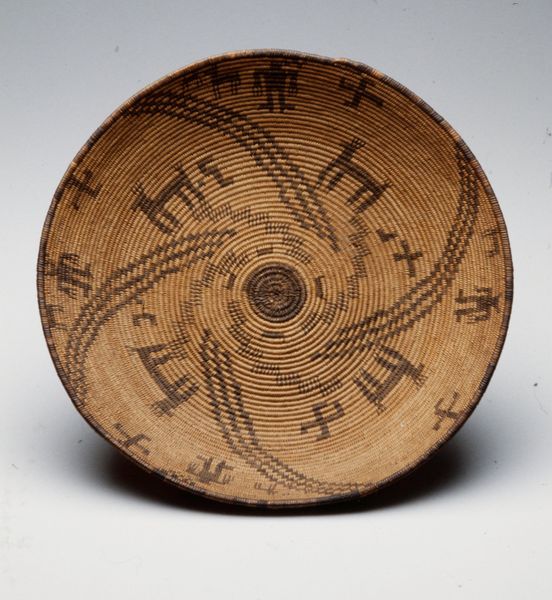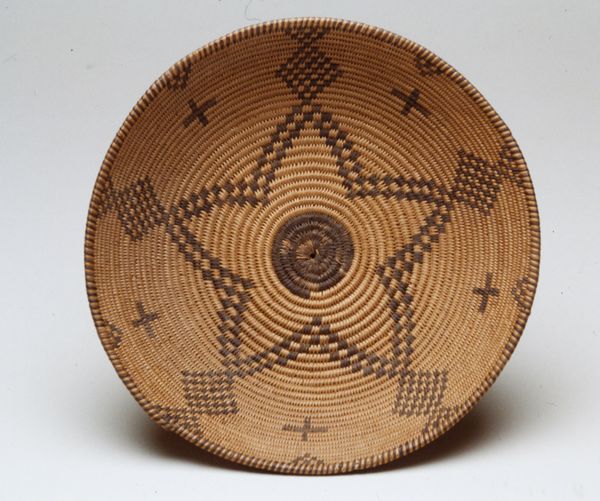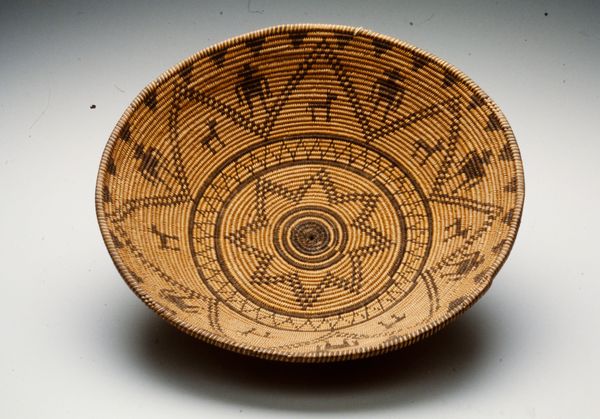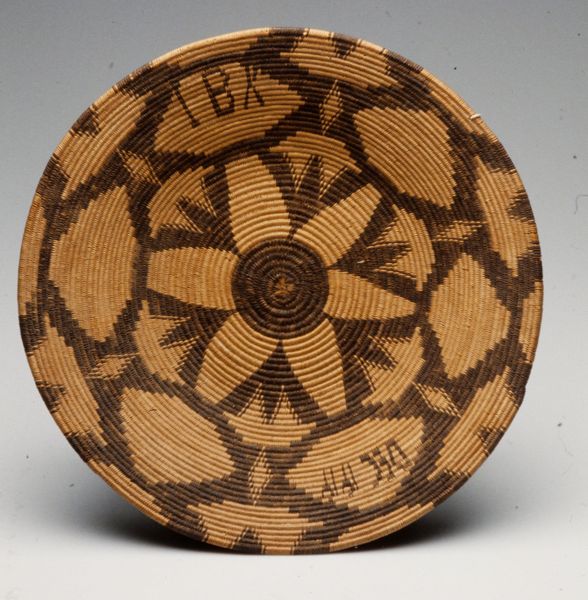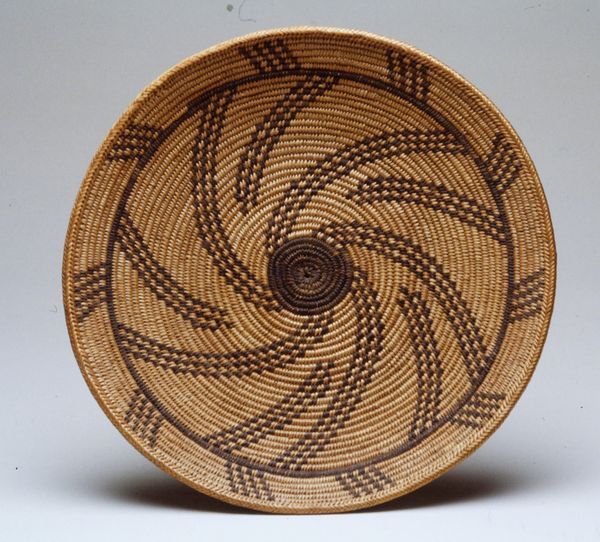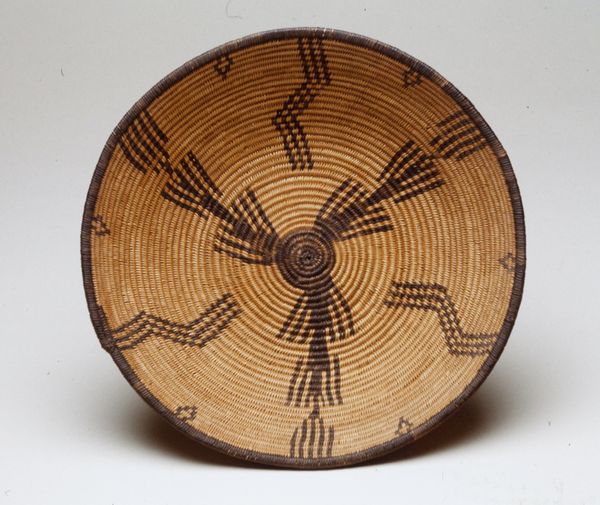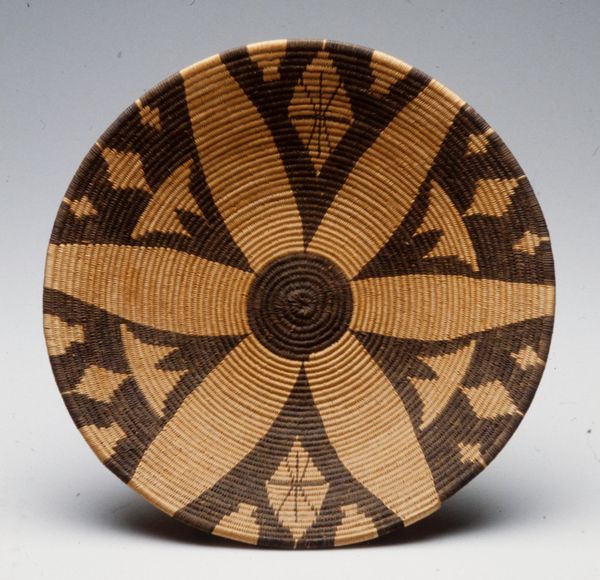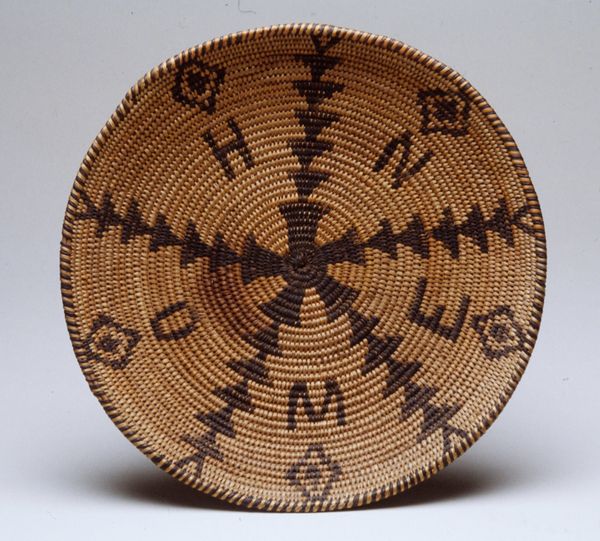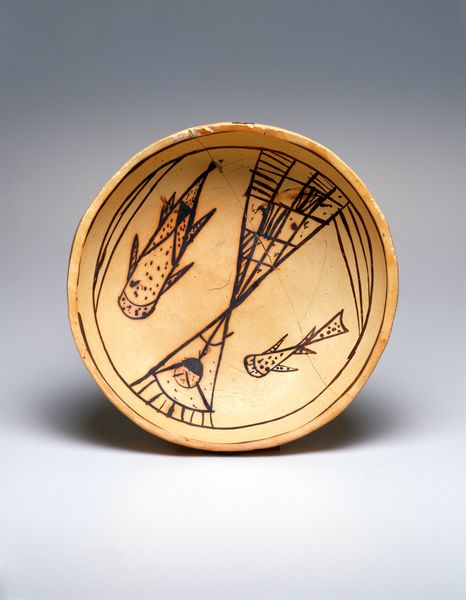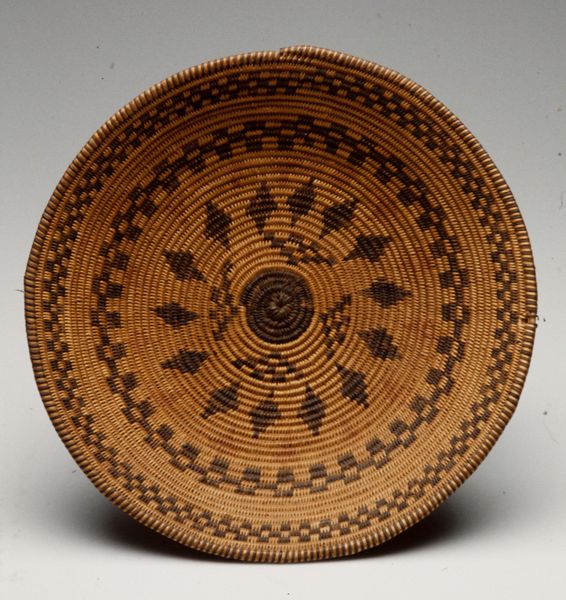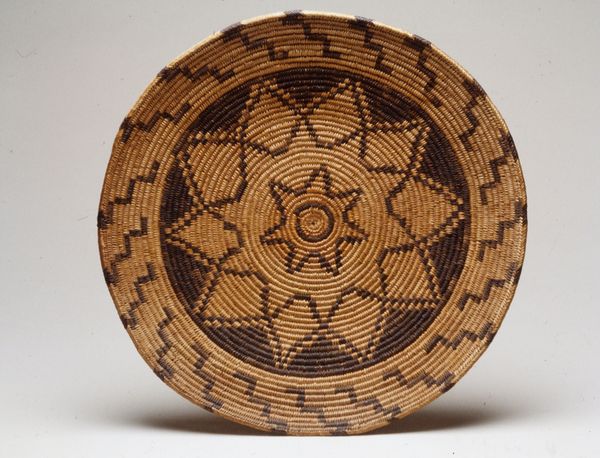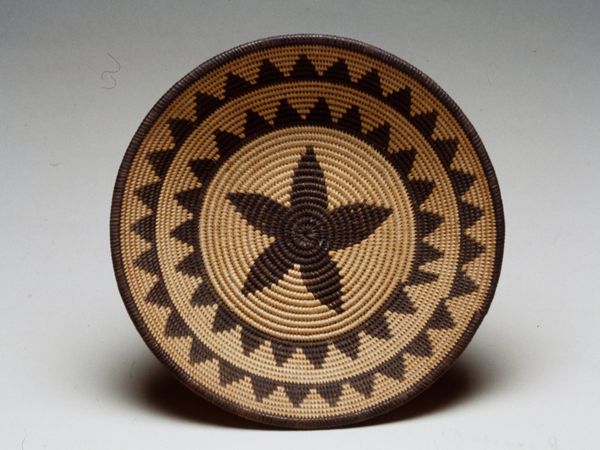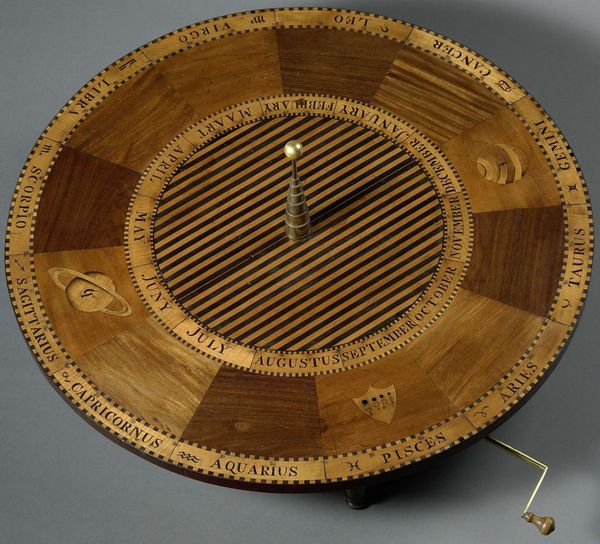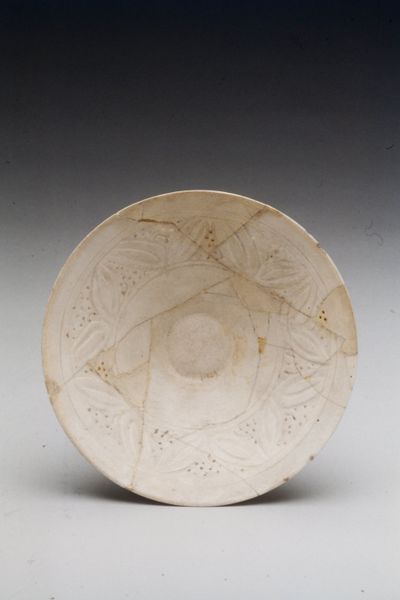
fibre-art, weaving, textile
#
fibre-art
#
pottery
#
weaving
#
textile
#
geometric
#
earthenware
#
decorative-art
#
indigenous-americas
Dimensions: 2 1/2 x 10 1/2 in. (6.35 x 26.67 cm)
Copyright: Public Domain
Editor: This woven basket, crafted around the 20th century by an Indé artist, has such a rhythmic, almost mesmerizing quality to it. I am particularly drawn to how the geometric patterns radiate outwards. How do you interpret this work? Curator: Considering this basket, it’s important to remember that it wasn’t created in a vacuum. How do the geometric patterns and stylized figures challenge or reinforce existing power structures for the Apache in the 20th Century? Editor: I hadn’t really thought about it like that! The figures almost look like animals, but they are extremely simplified. Curator: Exactly! The stylization is key. Consider the historical context: This piece emerges during a period of significant cultural disruption and forced assimilation for Indigenous communities. Is this a celebration of identity, or is it a more subdued statement? Does the basket conform to outsider expectations of “Native” art, or does it resist? Editor: I see what you mean. It's easy to appreciate the aesthetic qualities without considering the deeper cultural and political implications. It definitely encourages a more critical approach to Indigenous art. Curator: Precisely. Recognizing the impact of colonization on artistic production can give you a richer understanding. This isn’t just a basket; it's a statement about resilience and cultural endurance. Editor: It really changes how I view the basket now. It’s more than just a beautiful object. Thanks for sharing that insight. Curator: And thank you for noticing that beautiful patterns, a key to enter these intersectional narratives!
Comments
No comments
Be the first to comment and join the conversation on the ultimate creative platform.
